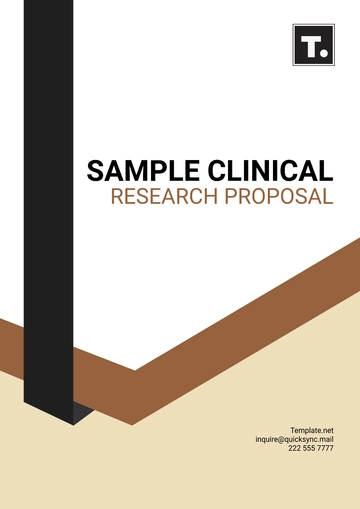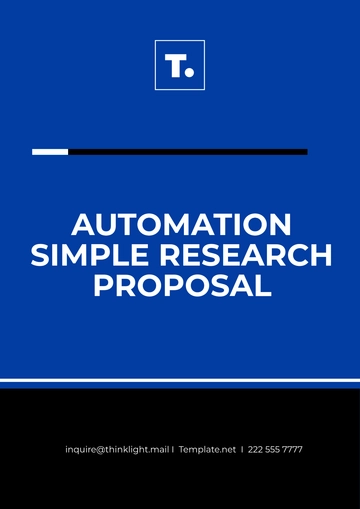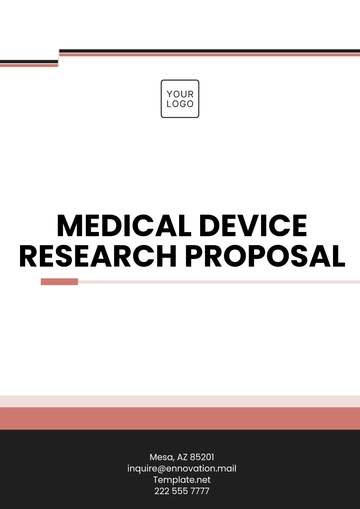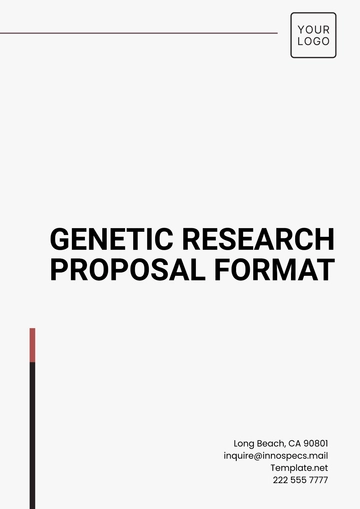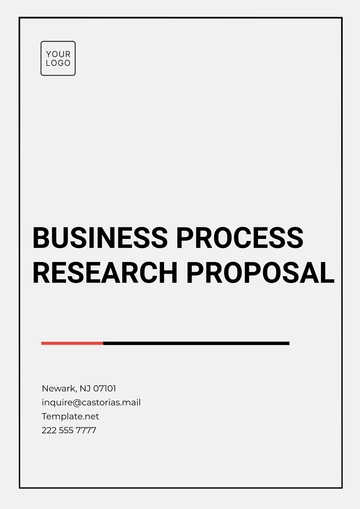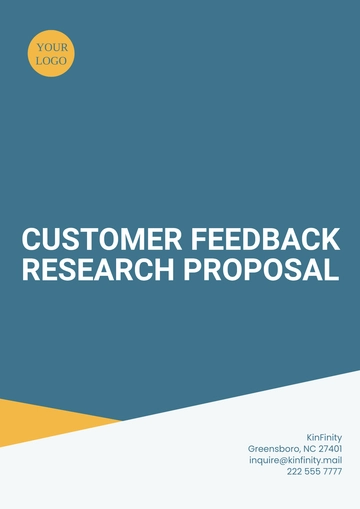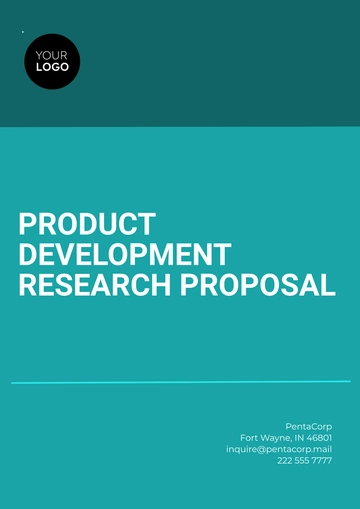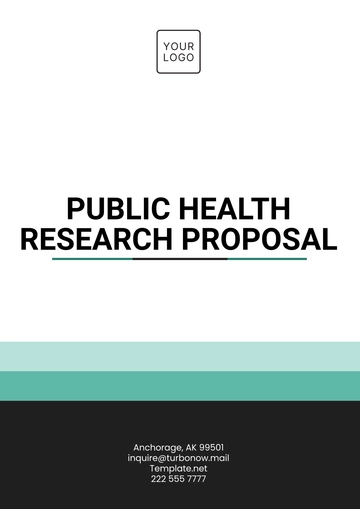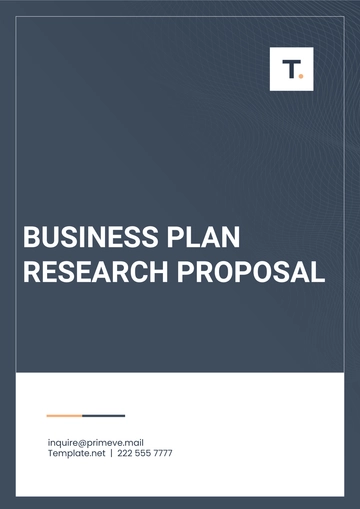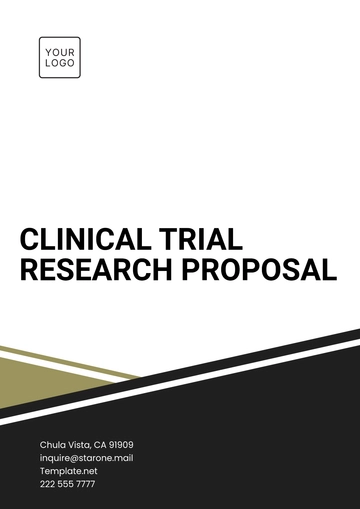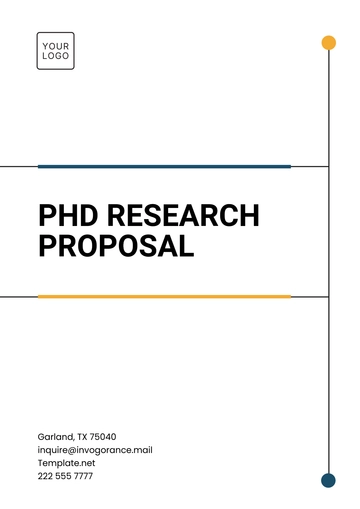Free Printable Research Format Proposal
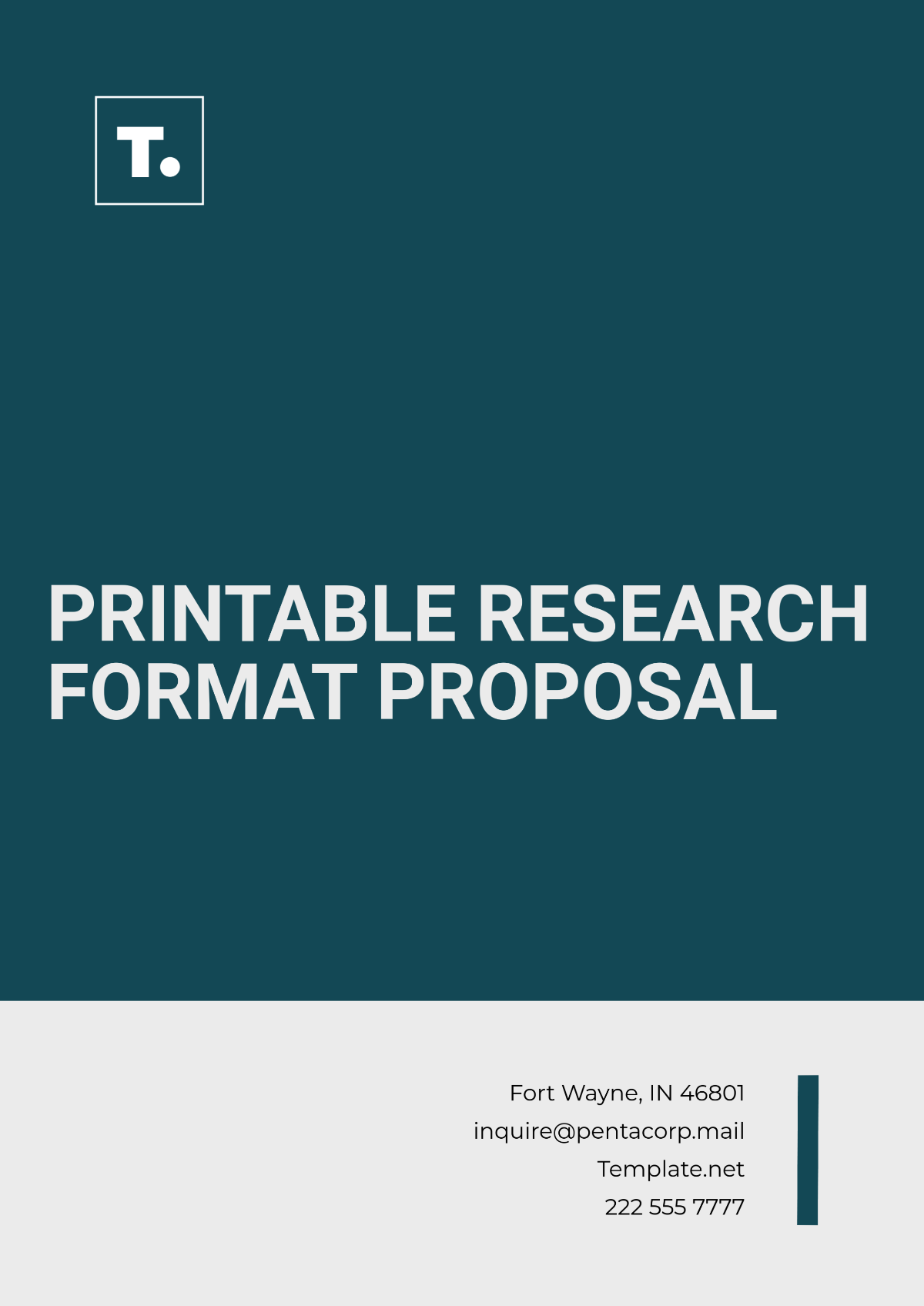
Prepared by: [Your Name]
Date: [Date]
I. Abstract
Summary of Research: Write a summary of your research proposal. The abstract should be no more than 250 words and should include the purpose of the study, the methods used, and the expected outcomes.
Key Objectives: State the primary goal of the research, specifying the main research question or hypothesis.
Methodology Overview: Provide a brief overview of how the research will be conducted, such as whether you will use qualitative or quantitative methods, surveys, experiments, or case studies.
Expected Outcomes: Briefly outline what you expect to find through your research and the potential impact of your findings.
II. Introduction
Background Information: Introduce the research topic by providing some context. Explain why this topic is important and what gap in knowledge or understanding your research intends to fill.
Research Problem: Clearly define the problem your research will address. Discuss any relevant issues that highlight the need for this research.
Research Questions or Objectives: State the specific questions or objectives your research aims to answer or achieve. This could include hypotheses or general inquiries into unexplored areas.
Purpose of Study: Explain the purpose of your study. What are you hoping to achieve? Is it to explore, explain, predict, or evaluate certain phenomena?
III. Literature Review
Review of Previous Research: Summarize key studies related to your research topic. Identify the major theories, findings, and debates that exist in the field.
Identify Gaps: Highlight gaps or unresolved questions in existing research that your study intends to address. Explain why these gaps are significant.
Key Concepts and Definitions: Define any key terms or concepts that are central to your research topic. This helps clarify the focus of your research.
Relevance of Literature: Discuss how the existing literature informs your study. Explain how your research will build on or challenge previous work in the field.
IV. Research Methodology
Research Design: Describe the overall approach to the study. Will it be a qualitative, quantitative, or mixed-methods study? Justify why this design is suitable for your research goals.
Data Collection Methods: Detail how you plan to collect data. Will you use surveys, interviews, experiments, observational studies, or another method? Explain how these methods will help you answer your research questions.
Sampling: Describe the sample size and selection process. Who are your participants? How will you select them, and why is this sample appropriate for your study?
Data Analysis: Explain how you will analyze the data once it is collected. Will you use statistical software, coding methods, thematic analysis, etc.? Describe the techniques you’ll use to make sense of the data.
Ethical Considerations: Address any ethical issues associated with your research. How will you ensure confidentiality, obtain consent, and address potential biases?
V. Timeline
Research Phases: Break down the entire research process into distinct phases. This could include the planning phase, data collection, data analysis, and final report writing.
Time Allocation: Allocate a specific amount of time for each phase. Be realistic about how long each task will take. For instance, a literature review may take a month, and data collection could take several weeks.
Deadlines: Include deadlines for each phase to help you stay on track and ensure that the research project progresses promptly.
Contingency Plans: If applicable, mention any potential delays or problems you anticipate and how you plan to address them.
VI. Budget (if applicable)
Breakdown of Costs: Provide a detailed estimate of all costs associated with your research. This may include expenses for materials, equipment, software, travel, participant incentives, and any other relevant costs.
Justification: Justify the need for each item in the budget. For example, if you need a survey software subscription, explain why it is necessary for data collection.
Funding Sources: If you have already secured funding or have plans to apply for grants, mention the sources and amounts of funding you have or will seek.
Contingency: If applicable, include a contingency budget to cover unexpected costs.
VII. Expected Outcomes
Potential Findings: Outline the potential findings of your research. What are you hoping to discover, and how might these findings contribute to the field?
Impact and Implications: Discuss the possible implications of your research. How will your findings affect current knowledge, practices, or policies in the relevant field?
Limitations: Mention any limitations in your research that might influence the outcomes, such as sample size, time constraints, or method limitations.
Further Research: Indicate any areas for future research that may arise from your study. How could your findings open doors for further investigation?
VIII. References
Cite All Sources: List all the sources that have been cited throughout your proposal. This may include books, articles, reports, and other scholarly materials. Ensure that each reference follows a consistent citation style (APA, MLA, Chicago, etc.).
Accurate and Complete Citations: Each source should be cited fully, including authors, titles, publication dates, and publisher details, as required by your chosen citation style.
Diversity of Sources: Ensure that you have used a variety of sources, such as peer-reviewed journals, books, reputable websites, and other credible references. This adds validity to your research proposal.
- 100% Customizable, free editor
- Access 1 Million+ Templates, photo’s & graphics
- Download or share as a template
- Click and replace photos, graphics, text, backgrounds
- Resize, crop, AI write & more
- Access advanced editor
Prepare a research proposal with ease using the Printable Research Format Proposal Template from Template.net. Editable and customizable, this template helps you outline your research in a clean, professional format. It’s also editable in our AI Editor Tool, making it quick and easy to make changes on the go.
You may also like
- Business Proposal
- Research Proposal
- Proposal Request
- Project Proposal
- Grant Proposal
- Photography Proposal
- Job Proposal
- Budget Proposal
- Marketing Proposal
- Branding Proposal
- Advertising Proposal
- Sales Proposal
- Startup Proposal
- Event Proposal
- Creative Proposal
- Restaurant Proposal
- Blank Proposal
- One Page Proposal
- Proposal Report
- IT Proposal
- Non Profit Proposal
- Training Proposal
- Construction Proposal
- School Proposal
- Cleaning Proposal
- Contract Proposal
- HR Proposal
- Travel Agency Proposal
- Small Business Proposal
- Investment Proposal
- Bid Proposal
- Retail Business Proposal
- Sponsorship Proposal
- Academic Proposal
- Partnership Proposal
- Work Proposal
- Agency Proposal
- University Proposal
- Accounting Proposal
- Real Estate Proposal
- Hotel Proposal
- Product Proposal
- Advertising Agency Proposal
- Development Proposal
- Loan Proposal
- Website Proposal
- Nursing Home Proposal
- Financial Proposal
- Salon Proposal
- Freelancer Proposal
- Funding Proposal
- Work from Home Proposal
- Company Proposal
- Consulting Proposal
- Educational Proposal
- Construction Bid Proposal
- Interior Design Proposal
- New Product Proposal
- Sports Proposal
- Corporate Proposal
- Food Proposal
- Property Proposal
- Maintenance Proposal
- Purchase Proposal
- Rental Proposal
- Recruitment Proposal
- Social Media Proposal
- Travel Proposal
- Trip Proposal
- Software Proposal
- Conference Proposal
- Graphic Design Proposal
- Law Firm Proposal
- Medical Proposal
- Music Proposal
- Pricing Proposal
- SEO Proposal
- Strategy Proposal
- Technical Proposal
- Coaching Proposal
- Ecommerce Proposal
- Fundraising Proposal
- Landscaping Proposal
- Charity Proposal
- Contractor Proposal
- Exhibition Proposal
- Art Proposal
- Mobile Proposal
- Equipment Proposal
- Student Proposal
- Engineering Proposal
- Business Proposal
